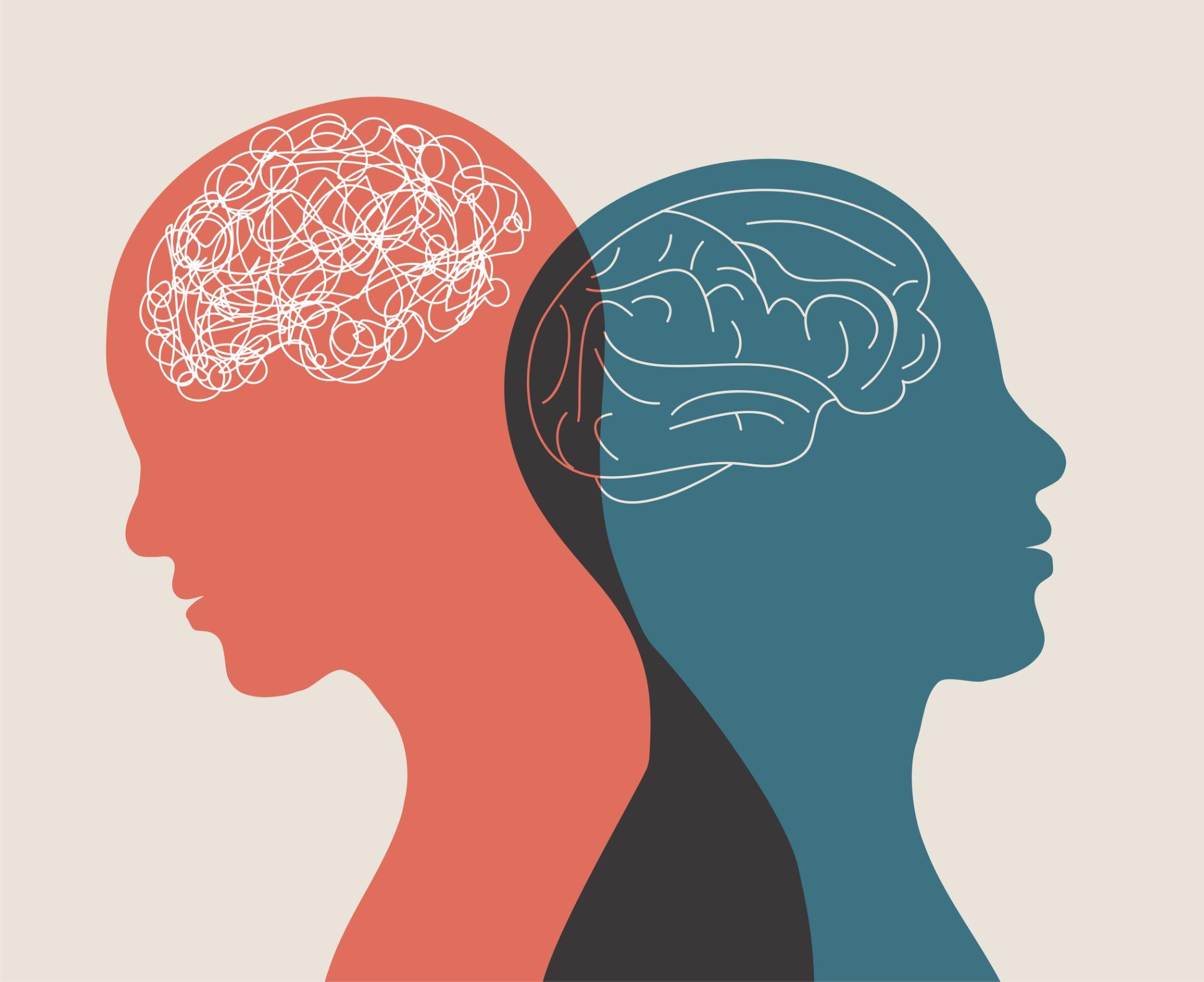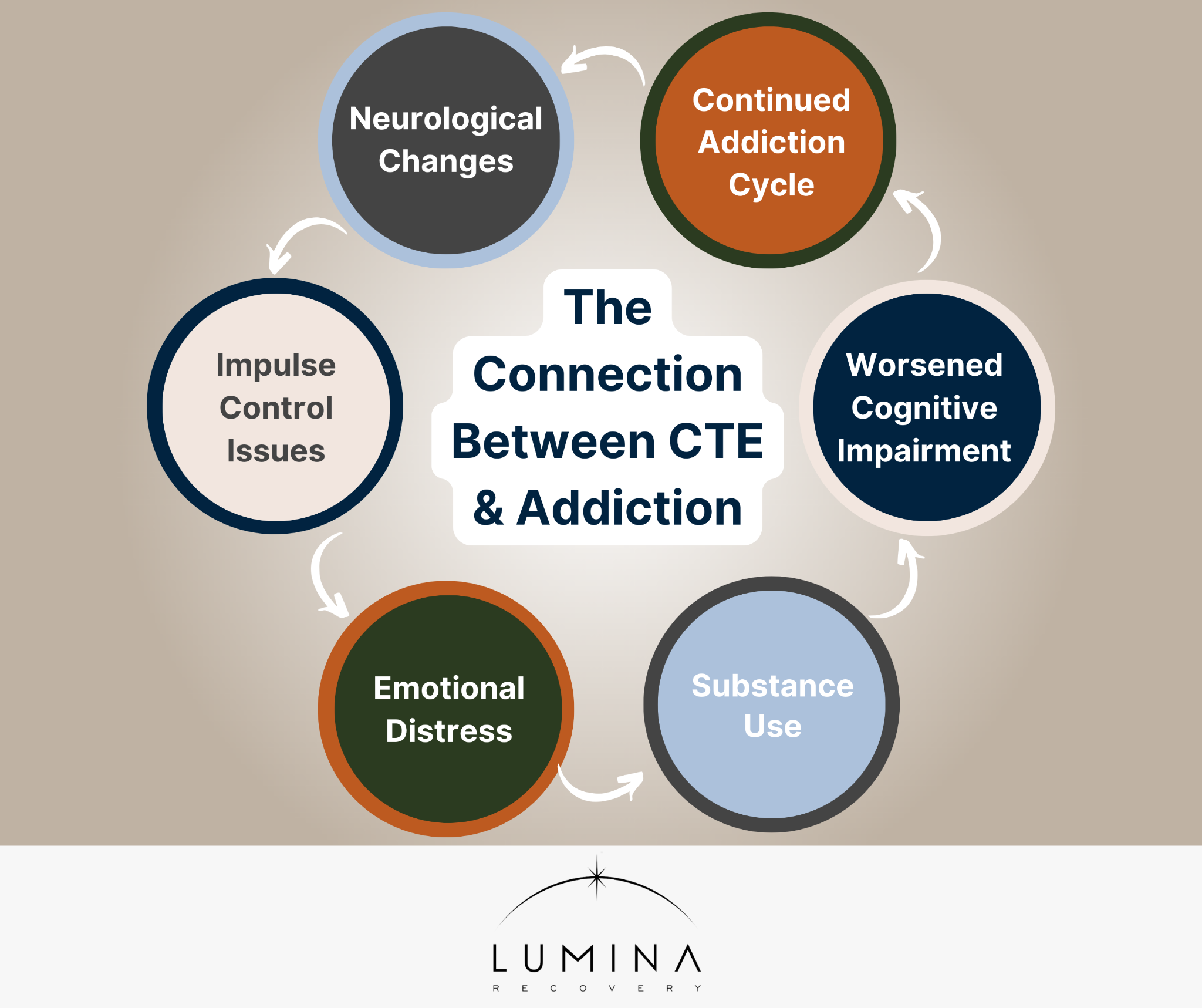
Our Addiction Resources
Navigating the world of addiction and recovery can be overwhelming. We’re here to provide clear, compassionate education and guidance. From practical advice for maintaining sobriety to informational guidance on the long-term effects of substance abuse, our content is a beacon of hope and understanding.
Our Team is Ready are ready to take your call
Call us Today!
or we can call you. Fill out form below
Our Blog

The Relationship Between Alcohol and Depression
Many people struggling with depression drink alcohol to self-medicate. This attempt to alleviate the symptoms of depression can quickly spiral into alcohol addiction, creating a complex relationship between the two.
Understanding this relationship is crucial for anyone who is experiencing these challenges or for their loved ones. The information below aims to shed light on how alcohol and depression interact, the impact of this interaction on individuals, and steps towards managing both conditions.
What Is the Connection?
The relationship between alcohol and depression is deeply intertwined, affecting individuals physically and psychologically.
On a biological level, consuming alcohol can temporarily boost one’s mood by increasing the production of certain neurotransmitters in the brain. However, this solution is fleeting. In reality, alcohol eventually leads to a decrease in these neurotransmitters, which can make the symptoms of depression worse over time.1
Psychologically, alcohol might seem like a refuge, offering a momentary escape from the symptoms of depression. Individuals may experience a short-lived euphoria or numbness, mistakenly believing they are coping with their feelings of sadness or hopelessness. Yet, as the effects of alcohol wear off, the reality sets in that it only masks these feelings temporarily, often leaving individuals feeling even more depressed afterward.
Alcohol as Self-Medication
Many people with depression may not realize the long-term implications of using alcohol for self-medication. Initially, it might appear to offer relief from major depression by dulling the pain or making problems seem less intense. This can quickly become a preferred method of coping, leading to drinking habits where alcohol is used more frequently and in larger quantities to achieve the same numbing effect.
Unfortunately, this cycle can escalate into alcohol misuse or alcohol use disorder, further complicating the treatment of depression. The temporary solace found in alcohol is overshadowed by its ability to deepen the depression, creating a cycle that is difficult to break without intervention.
The Impact on Mental Health
The interplay between alcohol and depression can lead to a significant worsening of depressive symptoms. Alcohol, a central nervous system depressant, can magnify feelings of lethargy, sadness, and hopelessness, which are commonly experienced in depression. For individuals with depression, the initial relief from alcohol swiftly gives way to intensified depressive episodes.
The chemical imbalance caused by alcohol abuse disrupts the brain’s natural ability to regulate mood, leading to deeper and more prolonged periods of depression. Over time, this cycle of drinking to alleviate depression, only to experience worsened symptoms afterward, can become a persistent pattern, making recovery increasingly challenging.
Alcohol’s effect on the brain extends beyond mood regulation, impairing cognitive functions and decision-making abilities. Chronic alcohol use can lead to difficulties in thinking clearly, problem-solving, and remembering.
These cognitive impairments can make it harder for individuals to manage their depression effectively, pursue treatment, or engage in activities that could help improve their mental health conditions. The diminished cognitive function also affects one’s ability to recognize the harmful dependence on alcohol use and its impact on depression, further establishing the cycle of addiction.
Recognizing the Problem
The journey towards recovery begins with the crucial step of recognition. It requires individuals to acknowledge that alcohol addiction and depression are intricately connected, not isolated health problems.
This realization is often challenging, as it involves confronting painful emotions and admitting the need for help. Once this step is taken, the path to seeking professional assistance becomes clearer. Encouragement from loved ones to reach out to therapists, counselors, or rehabilitation centers can be invaluable.
These professionals offer specialized support and can guide individuals through the complexities of dual diagnosis, ensuring that both depression and alcohol addiction are addressed together.
Treatment Options
Effective management of co-occurring alcohol addiction and depression requires integrated treatment. Dual diagnosis treatment programs are designed with this in mind, offering a blend of therapies that tackle both conditions simultaneously.
Medication may play a crucial role in this process. Antidepressants can help in managing depression, while other medications can assist in reducing alcohol cravings and dependency. However, medication is most effective when combined with therapy.
Cognitive behavioral therapy (CBT) and other therapeutic approaches can help individuals understand the triggers of their alcohol use and depressive episodes, develop healthier coping mechanisms after stopping drinking, and rebuild their lives.
Support Systems

A strong support system is central to successful recovery. Family and friends can provide the emotional support and understanding that individuals need during this challenging time. Their encouragement can make a significant difference in motivating someone to seek treatment and stay on the path to recovery.
Additionally, support groups offer a sense of community and understanding from others who are facing similar challenges. Groups such as Alcoholics Anonymous (AA) and the Depression and Bipolar Support Alliance (DBSA) provide a platform for sharing experiences, strategies for coping, and mutual encouragement, reinforcing the individual’s efforts toward recovery.
Lifestyle Changes
Recovery from alcohol addiction and depression also involves making positive lifestyle changes. Regular physical activity, a nutritious diet, and sufficient sleep can have profound effects on mental health, enhancing mood and reducing symptoms of depression.
Moreover, it is crucial to identify and avoid triggers such as situations, emotions, or people that increase the risk and urge to drink. Developing new hobbies, engaging in social activities, or volunteering can offer fulfillment and distraction from the temptations of alcohol.
These lifestyle adjustments, combined with professional treatment and support, create a comprehensive approach to managing depression and overcoming alcohol addiction.
Find a Path Forward from Alcohol and Depression With Lumina Recovery
The complex and intertwined relationship between alcohol and depression means each condition can exacerbate the other. However, with the right support and treatment, individuals can navigate the path to recovery.
At Lumina Recovery, we believe in providing compassionate care and comprehensive treatment through our depression dual diagnosis program and alcohol addiction services.
Contact our team today to guide you or your loved one through this challenging journey towards a brighter, healthier future.
Sources:

Connecting Bipolar Disorder and Addiction
Bipolar disorder is a mental illness characterized by significant mood changes, including emotional highs and lows. These mood swings can affect sleep, energy levels, behavior, judgment, and the ability to think clearly.
Navigating life with the effects of bipolar disorder can be challenging, and when addiction enters the mix, these challenges can multiply. Both conditions, deeply complex on their own, create a unique intersection that affects individuals in profound ways.
Lumina Recovery aims to shed light on the relationship between addiction and bipolar disorder, offering insight, understanding, and guidance for those experiencing these conditions, as well as their loved ones.
The Link Between Bipolar Disorder and Addiction
People with bipolar disorder often face big ups and downs in their mood. These mood changes can make daily life tough. Sometimes, individuals who develop bipolar disorder might turn to drugs or alcohol to cope with these feelings. This is common but risky because when someone uses substances to try to feel better, it can start a cycle that’s hard to break.
During high periods, called mania or manic episodes, a person might feel overly happy or energetic and might not see the need for treatment. They may use drugs to keep these feelings going. During low periods of depressive episodes, they might use substances to try to escape their sadness.1
This cycle can lead to addiction. Addiction means that a person keeps using drugs or alcohol, even when it causes harm. When someone has both bipolar disorder and an alcohol use disorder or substance use disorder, it’s known as a dual diagnosis. This situation is complex but treatable.
Impact of Substance Use on Bipolar Disorder
When someone with bipolar disorder uses drugs or alcohol, it can make their condition worse. Using substances can lead to more frequent and intense mood swings. This means that someone might experience more highs and lows than they would without using substances.
Substances can also interfere with the treatment of bipolar disorder. Medications for bipolar disorder may not work as well, and it can be harder for doctors to find the right treatment plan. Alcohol and drugs can mix badly with bipolar medications, causing unwanted side effects or reducing the medication’s effectiveness.
Moreover, using substances can disrupt a person’s life in many ways. It can affect their sleep, eating habits, and overall health. This can make the symptoms of bipolar disorder even harder to manage. Recognizing the harmful effects of substance use is a crucial step toward getting the right treatment and support.
Strategies for Managing Bipolar Disorder and Addiction

Seek Professional Help
The complexity of treating addiction and bipolar disorder necessitates a multifaceted treatment approach tailored to the individual’s unique needs. Professional help can include psychiatrists, psychologists, addiction specialists, and other mental health professionals who are experienced in dual diagnosis.
- Medication Management: Medications such as mood stabilizers, antipsychotics, and antidepressants can be crucial for managing bipolar disorder, while certain medications may be used to address addiction. Medication regimens must be closely monitored by healthcare providers to address both conditions effectively and to manage potential interactions between medications and substances of abuse.
- Psychotherapy: Therapies like cognitive behavioral therapy (CBT), dialectical behavior therapy (DBT), and family therapy can be instrumental in teaching coping strategies, improving communication skills, and addressing the underlying issues that may contribute to substance use and mood episodes.
- Integrated Treatment Programs: Look for treatment programs that specialize in treating both bipolar disorder and addiction These integrated programs understand the complexities of dual diagnosis and provide a coordinated approach to treatment. This holistic approach addresses all aspects of the individual’s health, ensuring a more effective and comprehensive recovery process.
Support Systems
Building a robust support system is crucial for individuals with bipolar disorder and addiction. This network can include family, friends, healthcare providers, and peers who are also in recovery. A strong support system offers emotional support, practical assistance, and can play a critical role in preventing relapse.
- Open Communication: Encouraging honest and open communication within one’s support network can help in sharing struggles and achievements, and in seeking help when needed.
- Professional Support: Regular check-ins with healthcare providers and therapists can ensure that treatment plans are effective and adjusted as needed.
Healthy Lifestyle Choices
Adopting healthy lifestyle habits can significantly improve the management of bipolar disorder and addiction by stabilizing mood and reducing the urge to use substances.
- Exercise: Engaging in regular physical activity can improve mood, reduce stress, and enhance overall well-being.
- Diet and Nutrition: A balanced diet can impact physical and mental health Some individuals find that certain dietary choices can help manage their symptoms better.
- Sleep: Maintaining a regular sleep schedule is vital for managing bipolar disorder, as sleep disturbances can trigger mood episodes.
Avoid Triggers
Identifying and avoiding triggers that can lead to substance use or exacerbate bipolar symptoms is an essential strategy. This may involve making changes to one’s social activities, environment, or coping mechanisms.
- Substance Use Triggers: Recognizing situations, emotions, or people that increase the risk of substance use and developing strategies to cope with these triggers effectively.
- Mood Triggers: Identifying stressors or situations that may precipitate mood episodes and working with a therapist to develop coping strategies to deal with these triggers.
- Environmental Triggers: It’s also important to be aware of environmental factors like places or events that may influence mood or substance use. Creating a safe and supportive environment is key to maintaining stability and reducing the risk of relapse.
Navigate Bipolar Disorder and Addiction With Lumina Recovery
Bipolar disorder and addiction are intricately linked, presenting challenges that require patience, understanding, and comprehensive care. If you or someone you know is struggling with bipolar disorder and addiction, remember, help is available, and recovery is possible.
Lumina Recovery provides bipolar disorder dual diagnosis services and different drug addiction programs to help you embrace the journey toward health and wellness that can lead to a fulfilling life.
Contact us today if you would like to learn more about our programs.
Sources:

The Relationship Between PTSD and Addiction
Life often presents us with challenges, but for some, these challenges leave deep, lasting scars. Post-traumatic stress disorder (PTSD) is a mental health condition that emerges in the wake of overwhelming traumatic experiences, casting long shadows over the lives of those affected. People with PTSD carry the burden of their experiences daily, facing memories and emotions that can be paralyzing and pervasive.
Amidst this struggle, it’s not uncommon for drugs or alcohol to become a refuge. The allure of these substances lies in their ability to offer a temporary escape, a brief respite from the relentless torment of PTSD.
This dual struggle with PTSD and substance use disorder (SUD) is a stark reality for many, creating a complex web of emotional and physical challenges. By understanding this intricate relationship, we aim to illuminate paths toward healing and recovery, providing hope and support to those entangled in this struggle.
Exploring the Link Between PTSD and Addiction
The journey of the connection between PTSD and addiction is multifaceted and deeply personal. Individuals who have experienced a traumatic event often find themselves in the grip of intense, overwhelming emotions and memories.
The psychological landscape of PTSD is fraught with triggers that can reignite the trauma, leading to anxiety, depression, nightmares, and flashbacks. In seeking solace, many turn to drug abuse that promises a momentary escape from the pain.
This self-medication, however, is a double-edged sword. While drugs and alcohol may temporarily dull the pain, they also deepen the dependency, leading individuals down the path of addiction. The initial relief fades, replaced by a cycle of substance use that becomes increasingly difficult to escape.
This cycle is not merely a symptom of PTSD but a compounding factor that exacerbates the condition, creating a feedback loop where each disorder fuels the other. Substance abuse can numb the pain of PTSD, but it also hinders the ability to process and heal from trauma effectively.
Research highlighted by the U.S. Department of Veteran Affairs emphasizes the prevalence of this connection, revealing that individuals with PTSD are at a significantly higher risk of developing a substance use disorder. The reasons are multifaceted, encompassing the desire to self-medicate, to alleviate symptoms of PTSD, and to cope with the isolation, despair, and stigma often associated with these conditions.
Challenges in Treating PTSD and Addiction
Treating individuals who are battling both PTSD and addiction presents a unique set of challenges. These challenges stem from the intertwined nature of these conditions, where each disorder exacerbates the symptoms and progression of the other. This complexity requires a nuanced understanding and integrated treatment options that address both conditions simultaneously, a task easier said than done.
One of the primary challenges is diagnosis. The overlapping symptoms of PTSD and substance use disorders can mask one another, making it difficult for healthcare providers to identify and treat both mental disorders effectively. For instance, substance use may dampen or heighten PTSD symptoms, complicating the clinical picture and potentially leading to misdiagnosis or incomplete treatment plans.
Another significant challenge is engagement in treatment. Individuals suffering from PTSD may find it particularly hard to trust healthcare providers or engage in therapy due to trauma-related fear, anxiety, or paranoia. This challenge is compounded when addiction is involved, as substance dependence can diminish motivation for treatment or lead to denial about the severity of one’s condition.
Traditional treatment methods designed to address either PTSD or addiction in isolation may not be effective for individuals with co-occurring mental health disorders.
For example, some standard addiction treatments require a level of emotional stability and coping skills that those with untreated PTSD may not possess, while PTSD treatments may not account for the complexities of addiction, potentially leaving a critical aspect of the individual’s health unaddressed.
Strategies for Recovery

Despite these challenges, recovery from both PTSD and addiction is achievable with the right approach. Strategies for recovery must be holistic and integrated, acknowledging the complex interplay between trauma and substance use.
Integrated treatment programs are designed to address both PTSD and substance use disorders simultaneously, providing a coordinated approach that treats the whole person. Integrated treatment often combines psychotherapy, medication management, and support services to address the complex needs of individuals with co-occurring disorders.
Evidence-based therapies like cognitive behavioral therapy (CBT) are effective in treating both PTSD and addiction by helping individuals understand the connections between their thoughts, feelings, and behaviors.
Eye movement desensitization and reprocessing (EMDR) and prolonged exposure therapy are also proven therapies for PTSD that can be adapted to consider substance use issues, helping individuals process trauma and reduce reliance on substances.
Medication-assisted treatment (MAT) can play a crucial role in managing symptoms of PTSD and addiction. MAT can help stabilize mood, reduce cravings, and address underlying mental health conditions, making it easier for individuals to engage in therapy and recovery activities.
Holistic and alternative therapies such as mindfulness, yoga, and art therapy enhance well-being and provide additional tools for managing stress, anxiety, and emotional regulation. These therapies can complement traditional treatments by offering new ways to connect with oneself and process emotions.
Building a supportive network of peers, family, friends, community, and professionals is crucial for navigating the complexities of PTSD and addiction. This network can offer practical help, emotional support, and encouragement throughout the recovery process.
For those navigating the path to recovery, it’s important to remember that setbacks are a part of the journey. Healing from PTSD and overcoming addiction require time, patience, and perseverance. With the right strategies and support, individuals can rebuild their lives, finding hope and healing beyond their conditions.
Get Support for PTSD and Addiction With Lumina Recovery
Navigating the intricate relationship between PTSD and addiction is undoubtedly challenging, both for those directly experiencing these conditions and for their loved ones. But understanding this complex interplay marks the first step toward healing.
The journey of recovery, while fraught with obstacles, is also filled with opportunities for growth, resilience, and renewal. Through dual diagnosis treatment for PTSD/trauma and cognitive behavioral therapy (CBT), Lumina Recovery has many options for ultimate support during this personal experience.
Don’t hesitate to reach out to our supportive team to learn more about our treatment options and approaches.

The Power of Hope in Addiction Recovery
Facing addiction, whether it’s your own or that of a loved one, can feel like navigating through a never-ending storm. The path to recovery may seem obscured by clouds of doubt, fear, and uncertainty.
However, amidst these challenges, hope emerges to guide the way forward. Hope is not just a feeling—it’s a powerful force on the path from addiction to successful healing.
At Lumina Recovery, we explore the transformative power of hope in overcoming addiction, offering insights and encouragement to those caught in the struggle and their supportive loved ones.
The Role of Hope in Recovery
A New Perspective on Life
Hope is the spark that ignites a shift in perspective, transforming despair into determination. For someone stuck in the grip of addiction, the world and life’s pleasures can feel lost in the shadows.
Hope cuts through this darkness, offering a glimpse of a future where freedom from addiction is not just a dream but a reachable reality. It encourages the belief that there is a path forward, a life worth striving for beyond the immediate pain and struggle.
This renewed perspective is crucial—it turns obstacles into challenges to be overcome and setbacks into lessons to be learned.
The Foundation for Action
Action without hope is like journeying without a destination in mind. Hope lays the groundwork for meaningful action in recovery. It transforms the daunting task of change into a series of manageable steps, each one moving the individual closer to recovery.
Hope motivates engagement with addiction treatment plans, whether that’s through medication-assisted treatment, counseling, or peer support groups. It’s the reassuring voice that says, “This effort is worthwhile, and recovery is possible,” even when progress feels slow.
By fostering a hopeful outlook, individuals find the strength to commit to their recovery process, even when faced with the temptations of relapse.
Strengthening Resilience
Resilience is the ability to bounce back from setbacks, and hope is its bedrock. In the journey of recovery, not every day will be a step forward. There will be moments of doubt, instances of faltering, and possibly relapses.
However, hope ensures that these moments are not endpoints but rather points of reflection and growth. It empowers individuals to learn from their experiences and to stand up after a fall with more knowledge and a stronger resolve.
Hope tells us that our mistakes do not define us—rather, our response to them does. It is hope that says, “Try again, you can do this,” instilling the perseverance needed to continue on the path of recovery.
Encouraging Connection
Addiction often isolates individuals from their loved ones and communities, but hope bridges this gap. It encourages reaching out for help, opening up about struggles, and accepting support.
Hope fosters a sense of belonging, reminding those in recovery that they are not alone in their journey. It strengthens the resolve to heal, not just for oneself, but also for the people and life one cherishes.
Through hope, the value of connection becomes clear, underscoring the importance of support networks, whether they be friends, family, or recovery groups, in sustaining recovery.
Inspiring Transformation
Finally, hope is a catalyst for transformation. It challenges individuals to envision a better version of themselves and to embark on the hard work of making that vision a reality. Hope inspires changes in behavior, attitude, and self-perception.
It drives the pursuit of new skills, hobbies, and interests that fill the void left by addiction. With hope, transformation extends beyond sobriety—it encompasses personal growth, improved relationships, and a fulfilling life in recovery.
Cultivating Hope

Setting Realistic Goals
Hope thrives on progress, no matter how small. Setting realistic, achievable goals is critical to maintaining a hopeful outlook. These goals should be specific, measurable, attainable, relevant, and time-bound (SMART).
Whether it’s maintaining sobriety for a day, attending a weekly therapy session, or engaging in a new activity that brings joy, each goal achieved is a step forward in recovery and hope. It’s important to celebrate these victories, as they reinforce the belief in one’s ability to change and progress.
Setting incremental goals helps manage expectations, reducing the risk of disappointment that can dim hope.
Engaging in Positive Activities
Engaging in activities that bring joy and fulfillment can significantly bolster hope. These activities vary widely, from exercise and outdoor adventures to creative pursuits like art and music. The act of doing something enjoyable, especially with others, can lift spirits and provide a reprieve from the challenges of recovery.
It’s also a way to rediscover passions or find new interests that can fill life with positive experiences. Such activities remind individuals that there is beauty and enjoyment to be found in the world, reinforcing the value of the recovery journey.
Practicing Mindfulness and Gratitude
Mindfulness and gratitude are powerful practices for cultivating hope. Mindfulness encourages individuals to live in the moment, acknowledging thoughts and feelings without judgment. This practice can help reduce the stress and anxiety that often accompany recovery, making space for hope.
Gratitude, on the other hand, shifts focus to what is positive and enriching in one’s life, fostering a sense of abundance and well-being. By regularly reflecting on and appreciating the good, whether it’s supportive relationships, personal strengths, or the beauty of nature, individuals can cultivate a more hopeful and positive outlook on life and recovery.
Seeking Professional Help
Hope can also be nurtured by seeking professional help. Therapists, counselors, and addiction specialists can provide guidance, support, and strategies tailored to an individual’s unique journey.
They offer a professional perspective that can validate feelings, challenge negative thought patterns, and encourage positive change. Professional support can be essential in building the foundation of hope, ensuring that individuals do not feel they are navigating their recovery alone.
Get Help With Hope in Addiction Recovery With Lumina Recovery
Hope is the driving force that propels individuals forward, through the darkest of times towards a brighter future. For those embarking on this journey, or loved ones supporting them, embracing hope is essential.
With the services Lumina Recovery offers, including dual diagnosis treatment and different addiction programs, the path to recovery though challenging, becomes filled with possibility.
Get in touch with our team today to learn more.

9 Steps to Cope With Strong Emotions Without Drugs or Alcohol
Dealing with intense emotions can be challenging, especially if you’re in recovery from addiction or trying to support someone who is. It’s common to seek out quick fixes like drugs or alcohol as a way to cope with emotions and numb those feelings.
However, there are healthier ways to cope with negative emotions that can strengthen your resilience and enhance your well-being. Here are nine steps to manage strong emotions without relying on substances.
Step 1: Recognize Your Emotions
Acknowledging the emotions you start to feel is a critical first step in managing them effectively. Many people find it challenging to identify if they feel good or feel bad, especially if they’re used to suppressing their emotions with substances. Learning to recognize your emotions involves paying close attention to your body’s signals and the thoughts that accompany your feelings.
Action Plan
- Practice emotional labeling. Throughout the day, pause to reflect on what you’re feel Try to be as specific as possible, distinguishing between general states (e.g., upset) and more specific emotions (e.g., disappointed, frustrated).
- Use a feelings wheel. A feelings wheel can help you identify the nuances of your emotions by providing a visual guide to differentiating between related feel
- Try body scan meditations. Regularly practice body scan meditation to become more aware of physical sensations associated with different emotions. This can help you recognize emotions as they arise.
Step 2: Accept Your Feelings
Acceptance is about acknowledging your emotions without judgment. It’s a process of understanding that emotions are neither good nor bad, they are simply a part of being human. Accepting your feelings doesn’t mean you’re resigning yourself to suffering—it means allowing yourself to feel all emotions without criticism.
Action Plan
- Do self-compassion exercises. Practice speaking to yourself with kindness and understanding, especially when confronting difficult emotions and negative feelings.
- Try mindfulness-based stress reduction (MBSR). Consider enrolling in an MBSR program or similar mindfulness training to enhance your ability to accept and work with your emotions.
- Use reflective journaling. Write about your emotions without judging them. This is a great coping skill to help you process and accept your feelings more fully.
Step 3: Practice Mindfulness
Mindfulness helps you stay present with your emotions, observing them without getting caught up in them. It can be beneficial for managing anxiety, depression, and cravings that might lead someone to substance use.
Action Plan
- Practice daily mindfulness. Dedicate a specific time each day for mindfulness meditation, even if it’s just for 5-10 minutes.
- Do mindful walking. Incorporate mindfulness into everyday activities, such as walking, by paying attention to the sensations of your feet touching the ground, the rhythm of your breath, and the sounds around you.
- Utilize mindfulness apps. Use apps that offer guided meditations, breathing exercises, and mindfulness exercises tailored to different needs, including stress reduction, emotional regulation, and more.
Step 4: Seek Support
Having a supportive network is invaluable when dealing with strong emotions long-term. Support can come from various sources, including friends, family, support groups, and professional counselors.
Action Plan
- Reach out for professional help. If you’re struggling, consider seeking the help of a therapist who specializes in addiction recovery and emotional regulation.
- Find a support group. Look for groups, either in-person or online, where you can share your experiences and learn from others in similar situations.
- Lean on trusted individuals. Identify people in your life who are supportive and understanding. Try to open up to them about what you’re going through.
Step 5: Engage in Physical Activity
Physical activity is a powerful way to manage emotions. Exercise improves mental and physical health while having a positive impact on mood. This is thanks to the release of endorphins, chemicals in the brain that act as natural painkillers and mood elevators.
Action Plan
- Incorporate exercise into your routine. Find ways to add physical activity to your daily life, whether it’s a morning walk, a yoga class, or a workout session at the gym.
- Set realistic goals. Start with small, achievable goals to avoid feeling overwhelmed. Even a 10-minute walk can have positive effects on your mood.
- Choose activities you enjoy. The best form of exercise is one that you enjoy and can stick to. Experiment with different activities to find what suits you best.
Step 6: Use Creative Outlets

Creative expression can be a therapeutic way to deal with emotions, allowing for the non-verbal processing of feelings and reducing stress.
Action Plan
- Explore different mediums. Try painting, drawing, writing, music, or any other form of creative expression that appeals to you.
- Dedicate time regularly. Set aside regular time each week to engage in your chosen creative activity. Consistency can enhance the therapeutic benefits.
- Join a class or group. Participating in a class or joining a community group focused on your creative interest can provide structure and support.
Step 7: Learn to Redirect Negative Thoughts
Negative thinking patterns can exacerbate emotional distress. Learning to identify and challenge these thoughts can lead to more positive emotional outcomes.
Action Plan
- Identify triggers and patterns. Pay attention to situations or thoughts that lead to negative thinking. Recognizing these patterns is the first step toward change.
- Practice cognitive behavioral techniques. Techniques such as thought challenging and reframing can help you question and alter negative thoughts.
- Seek professional guidance. A therapist can provide personalized strategies and support to help you manage negative thinking patterns.
Step 8: Set Boundaries
Healthy boundaries protect your emotional well-being by helping you define what you are comfortable with and how you expect to be treated by others.
Action Plan
- Reflect on your needs. Identify areas in your life where your boundaries are being crossed. Consider what changes are necessary for your well-being.
- Communicate clearly. Express your boundaries to others clearly and assertively. It’s important to communicate your needs respectfully and without apology.
- Practice saying no. Saying no is a crucial aspect of setting boundaries. Practice in low-stakes situations to build your confidence.
Step 9: Make Time for Relaxation and Fun
Balancing life’s demands with relaxation and leisure activities is essential for emotional health. Engaging in activities purely for enjoyment can rejuvenate your mind and body.
Action Plan
- Incorporate relaxation techniques. Regularly practice relaxation techniques such as deep breathing, progressive muscle relaxation, or guided imagery.
- Schedule leisure time. Actively plan for leisure activities in your weekly schedule. This ensures that relaxation and fun are prioritized.
- Explore new hobbies. Experiment with new and different activities to find what brings you joy and relaxation.
Get Help for Coping With Strong Emotions in Sobriety With Lumina Recovery
Coping with strong emotions is a skill that requires practice and patience. By incorporating these strategies into your life, you can manage your feelings without turning to drugs or alcohol.
We believe your journey towards healing and recovery is personal and unique, and every step forward is a victory. At Lumina Recovery, we offer different services for dual diagnosis disorders and therapy options to provide the support you or your loved one needs.
Contact our team today to learn more about our services and how we can help you with your emotions and sobriety.

5 Ways To Deal With Anxiety When You’re Sober
Recovering from addiction is a monumental step toward a healthier, more fulfilling life. However, navigating the complexities of life without the crutches of alcohol or drugs can introduce new challenges, particularly in managing anxiety.
Anxiety disorders, a common companion to the sober journey, can feel overwhelming without the familiar escape of substances. But there’s hope and strength in the array of strategies to face it head-on.
Whether you’re walking this path yourself or supporting a loved one, understanding how to manage severe anxiety after getting sober is important. Here are five effective ways to deal with feeling anxious while staying sober.
1. Embrace Mindfulness and Meditation
Practicing mindfulness and meditation is extremely beneficial for managing anxiety, particularly in the journey of sobriety. These grounding techniques allow you to fully be in the present moment, offering a break from the relentless cycle of anxiety-driven thoughts about past regrets or future uncertainties.
Mindfulness involves paying attention to your current experience without judgment. This could mean observing your thoughts and feelings or focusing intently on your breathing and the sensations in your body. Simple mindfulness exercises, such as mindful eating or mindful walking, encourage you to engage fully with the present moment, enhancing your capacity to manage anxiety.
Meditation, particularly guided meditation, provides a structured approach to mindfulness. Through guided imagery or focused attention exercises, meditation can help calm the mind and reduce stress. Apps like Headspace or Calm offer a variety of guided meditation sessions tailored to different needs, including anxiety reduction.
Incorporating these practices into your daily routine doesn’t require a significant time commitment. Starting with just five to ten minutes a day can lead to meaningful benefits. Over time, as these grounding exercises become a regular part of your life, you may notice a decrease in anxiety levels and an improved ability to cope with stressors without resorting to substances.
2. Establish a Healthy Routine
A predictable routine can be incredibly soothing for the mind, especially for those suffering from anxiety. Structure your day with consistent sleep, meal times, and activities to provide a sense of normalcy and control, which is often lost in the chaos of addiction and recovery.
Sleep is critical in managing anxiety. Aim for 7-9 hours of quality sleep per night. Establish a calming bedtime routine to signal to your body that it’s time to wind down. This could include reading, taking a warm bath, or practicing relaxation exercises. Avoid screens at least an hour before bed, as the blue light can disrupt your sleep cycle.
Nutrition plays a vital role in your emotional and physical health. Consuming a balanced diet rich in fruits, vegetables, lean protein, and whole grains can help stabilize your mood and energy levels. Try to minimize the intake of processed foods, sugars, and caffeine, as these can exacerbate anxiety symptoms.
Physical activity is a natural anxiety reliever. Exercise releases endorphins, chemicals in your brain that act as natural painkillers and mood elevators. You don’t need to engage in intense workouts to reap the benefits. Activities like walking, cycling, or yoga can be highly effective in reducing anxiety and improving overall well-being.
3. Seek Support
Navigating the journey of sobriety can feel isolating, particularly when facing the challenge of anxiety. However, building a support network can play a pivotal role in your recovery and emotional well-being.
Engaging with a therapist who specializes in addiction and mental health conditions can provide you with personalized strategies to manage anxiety and address the underlying issues contributing to substance use. Cognitive behavioral therapy (CBT) is particularly effective in teaching coping skills for dealing with anxiety by challenging and changing negative thought patterns.
Support groups offer a community of individuals who understand the struggles of addiction and recovery. These meetings can provide a sense of belonging and a safe space to share experiences and coping strategies. For those dealing with co-occurring anxiety, groups specifically tailored to dual diagnosis can be incredibly beneficial.
The power of connection with friends and family can be life-changing. Sharing your journey with trusted loved ones can provide emotional support and accountability. If you’re comfortable, educating them about what you’re going through can also help them understand how to best support you.
There are also numerous online forums and social media groups dedicated to recovery and mental health. These platforms can offer support and advice at any time, making them a valuable resource for those who may not have access to in-person support or prefer the anonymity of online interactions.
4. Develop Healthy Coping Skills

As you navigate sobriety, developing a toolkit of healthy coping mechanisms is crucial for managing anxiety and avoiding relapse.
Journaling your thoughts and feelings can be a therapeutic way to process emotions and reduce stress. It can also help you identify triggers and patterns in your anxiety, providing insights into effective coping strategies.
Creative expression like painting, drawing, or playing music allows you to express yourself in non-verbal ways, offering a powerful outlet for emotions and stress. Engaging in creative activities can also boost self-esteem and provide a sense of accomplishment.
Relaxation techniques for anxiety include progressive muscle relaxation, deep breathing exercises, or guided imagery to help reduce symptoms. These practices can be particularly useful in moments of high stress or panic, offering a quick and accessible way to calm the mind and body.
Nature and outdoor activities can reduce anxiety and improve mood. Whether it’s a walk in the park, hiking in the mountains, or simply sitting in a garden, connecting with the natural world can provide a sense of peace and grounding.
Mindful movements like yoga, tai chi, and qigong combine physical movement with breath control and meditation, promoting relaxation and mindfulness. These practices can be especially beneficial for those dealing with anxiety, as they help to unify the mind and body, fostering a state of calm and balance.
5. Limit Stimulants and Screen Time
Reducing the intake of stimulants (like caffeine) and managing screen time are essential strategies for minimizing anxiety. Stimulants can increase heart rate and tension, while excessive screen time, especially before bed, can interfere with sleep quality.
Moderate Stimulant Consumption. Gradually reducing the intake of caffeine and sugar can help lower anxiety levels. Consider replacing caffeinated beverages with herbal teas or water to stay hydrated and calm.
Manage Screen Time. Implementing a digital curfew an hour or two before bedtime can improve sleep quality. Instead, engage in relaxing activities that don’t involve screens, such as reading or gentle stretching. Also, be mindful of the content you consume, as negative or stressful information can heighten anxiety.
Create Tech-Free Zones. Designate areas in your home where electronic devices are not allowed, such as the bedroom, to encourage relaxation and improve your sleep environment. This separation can help reduce the temptation to check devices impulsively and promote more mindful use of technology.
Get Help for Anxiety During Sobriety With Lumina Recovery
Dealing with anxiety in sobriety is a journey of self-discovery and resilience. By incorporating these strategies into your life, you’re not just managing anxiety—you’re building a foundation for a healthier, more serene life.
Sobriety brings its challenges, but with the right tools and support, managing anxiety is entirely possible. Lumina Recovery offers dual diagnosis care for anxiety and cognitive behavioral therapy (CBT) to help treat anxiety on your sobriety journey.
Get in touch with our team today to learn more about how we can help you or a loved one struggling with anxiety.

What Is Cross Addiction?
In the journey of understanding addiction, we often encounter terms and concepts that can be both enlightening and complex. One such concept is cross addiction, a phenomenon that can pose challenges for individuals in recovery and their loved ones.
Lumina Recovery aims to educate those on what cross addiction is, how it manifests, and strategies for dealing with it. Whether you’re navigating your own recovery journey or supporting someone else, understanding cross addiction is a crucial step in fostering resilience and promoting lasting healing.
Complexities of Cross Addiction
Cross addiction is when a person transitions from one addictive behavior or substance to another. This phenomenon underscores the nature of addiction, highlighting that it is not merely tied to a specific substance or activity but is rooted in the brain’s fundamental processes of seeking reward and avoiding pain.
At the heart of cross addiction is the brain’s reward system, a critical network that governs feelings of pleasure and motivation. When engaging in activities that produce feelings of euphoria or relief, such as drinking alcohol, using drugs, or even participating in sex or gambling, the brain releases dopamine, a neurotransmitter associated with pleasure and satisfaction.
Over time, the pursuit of these dopamine-induced feelings can lead to common cross addictions such as substance use disorders involving drugs and alcohol, a gambling addiction, or sex addiction.
This shows how cross addiction can extend into the realm of behavioral addictions, where non-substance-related behaviors, such as sex, shopping, or internet use, can become compulsive and detrimental. These activities can activate the brain’s reward system in similar ways to substance abuse, leading to a cycle of addiction that is challenging to break.
Why Does Cross Addiction Happen?
Understanding the root causes of cross addiction requires a deeper look into the interplay between biological, psychological, and environmental factors. It’s a dynamic process influenced by an individual’s neurobiology, past experiences, and current circumstances.
Biological Susceptibility
Some individuals possess a higher risk of cross addiction due to genetic factors or neurobiological characteristics. This predisposition can make the transition from one addictive behavior to another more likely, as the brain continually seeks alternative sources of reward.
Psychological Factors
Psychological factors play a crucial role in the development of cross addiction. Individuals may turn to different substances or compulsive behaviors as coping mechanisms with stress, trauma, or underlying mental health disorders such as depression or anxiety.
This substitution occurs because the individual is seeking relief or escape from discomfort, not necessarily because of the substance or behavior itself.
Environmental Influences
The environment in which an individual lives can significantly impact the likelihood of developing cross addiction. Exposure to high-stress environments, social circles where substance use is common, or situations that trigger memories of past addictive behaviors can all contribute to the emergence of new addictive patterns.
The Role of Unmet Needs
At its core, cross addiction often reflects an attempt to fulfill unmet emotional or psychological needs. Whether it’s the need for connection, relief from pain, or a way to manage stress, individuals may shift from one addiction to another in search of satisfaction.
Recognizing and addressing these underlying needs is crucial for successful recovery, addiction treatment, and avoidance of cross addiction.
The Signs of Cross Addiction
Recognizing the signs of cross addiction helps in addressing the issue before it escalates into a more serious problem. Cross addiction may not always be easy to identify, especially since it can take on many forms, including seemingly benign activities.
Emotional Changes. Look for shifts in mood that correlate with the new behavior, such as increased anxiety, depression, or irritability when unable to engage in the behavior.
Social Withdrawal. Individuals may start to isolate themselves from friends, family, or support groups, especially if these groups challenge the new addictive behavior.
Financial Problems. Unexplained financial issues may arise as resources are diverted towards the new addiction, whether it be through direct spending on substances or activities, or through neglect of financial responsibilities.
Physical Symptoms. Depending on the nature of the new addiction, physical symptoms may manifest, such as changes in weight, sleep patterns, or overall health.
Secrecy and Denial. An increase in secretive behavior surrounding the new activity, coupled with denial of its impact, can be a significant indicator of cross addiction.
Strategies for Managing Cross Addiction

Effectively managing cross addiction is a multifaceted endeavor that goes beyond merely abstaining from addictive behaviors or substances. It encompasses a holistic approach to treatment that addresses both the psychological underpinnings of addiction and the development of a healthy, balanced lifestyle.
1. Holistic Treatment Approaches
Holistic treatment approaches are foundational to managing cross addiction. Mindfulness and meditation can significantly enhance self-awareness, helping individuals recognize triggers and respond to them without resorting to addictive behaviors.
Physical activity is another method, as regular exercise not only bolsters physical health but also elevates mood and mitigates stress, which are common triggers for relapse.
Additionally, nutritional counseling can play a crucial role in recovery, as a balanced diet supports mental health and overall well-being, further stabilizing individuals in their journey.
2. Enhanced Support Systems
Engaging with support systems like peer support groups provides a sense of community and understanding that can be incredibly reassuring. For many, the journey through recovery is enriched by sharing experiences and strategies with others who face similar challenges.
Family therapy can also be instrumental in healing and strengthening the support network at home, ensuring that family members are not only supportive but also understand the complexities of addiction.
Professional guidance from therapists or counselors skilled in addiction recovery is invaluable, offering personalized strategies and support for navigating the challenges of cross addiction.
3. Education and Relapse Prevention
Education and relapse prevention are critical components of managing cross addiction. Attending workshops and seminars dedicated to understanding addiction and recovery can deepen one’s insight into the nature of cross addiction and bolster resilience.
Developing a relapse prevention plan is essential, as it prepares individuals to face potential triggers and high-risk situations with confidence and a clear strategy.
4. Routine and Structure
Integrating routine and structure into daily life can significantly reduce the stress and uncertainty that often fuel addiction. A predictable schedule for work, leisure, and recovery activities can instill a sense of stability and purpose.
Learning and applying time management skills can also alleviate feelings of overwhelm and anxiety, which frequently precipitate relapse.
5. Continuous Self-Reflection and Adjustment
Continuous self-reflection and adjustment are essential in the recovery process. Recovery is dynamic, and what works at one stage may need to be adjusted as individuals grow and change.
Regular self-reflection, whether through journaling or self-review sessions, allows for the assessment of progress and the identification of areas needing adjustment. Staying open to change and seeking help when needed are signs of strength and commitment to recovery.
Get Support for Cross Addiction With Lumina Recovery
Cross addiction is a complex but navigable challenge in the journey toward recovery. By understanding its mechanisms, recognizing its signs, and employing strategies to manage it, individuals can strengthen their resilience against addiction.
Lumina Recovery offers therapy support options and outpatient services to help those dealing with cross addiction. With awareness, support, and a commitment to holistic well-being, overcoming cross addiction is an attainable goal.
Contact our team of professionals today to learn more about the support we offer.

Sobriety & Depression: Coping With Depression Without Drugs and Alcohol
Recovery is a journey of transformation and rediscovery. For many, this path brings the dual challenge of maintaining sobriety while addressing depression, a prevalent form of mental illness. Without the numbing comfort of drugs and alcohol, feelings of sadness, emptiness, or hopelessness can feel more intense.
Yet, this journey also presents a profound opportunity for healing and growth. Below, we provide strategies to help manage depression in sobriety, offering hope and practical advice for those in recovery and their loved ones.
Seek Professional Help
Navigating depression and addiction, especially during early recovery and sobriety, is a complex process that often requires guidance from mental health professionals specializing in dual diagnosis.
These experts can offer individuals in recovery diagnoses, therapy, and sometimes medication to manage symptoms. Cognitive behavioral therapy (CBT) is particularly beneficial, focusing on changing negative thought patterns and behaviors that can contribute to symptoms of depression.
It’s also important to consult with a psychiatrist, as they can assess the need for medication that doesn’t compromise your sobriety. Remember, seeking help is a sign of strength and an essential step if you suffer from addiction and depression in recovery.
Build a Support Network
Navigating the struggle with depression and substance abuse demands a robust support system. This network can include support groups, where shared experiences forge a sense of belonging and understanding. Sober communities offer a judgment-free zone to discuss challenges and celebrate milestones.
The support of friends and family can also be a beacon of hope when suffering from depression. These relationships provide comfort, encouragement, and a reminder that you’re not alone.
Engaging in open dialogues about your struggles and victories in family therapy or general conversations not only helps your recovery but also strengthens the bonds with those around you.
Establish a Routine
Depression can disrupt your life’s structure, making it hard to maintain a healthy routine. Establishing a daily routine is crucial for managing depression and supporting sobriety.
A consistent routine can help regulate your body’s clock, leading to better sleep, improved mood, and reduced anxiety. Here are some tips to consider:
Set Regular Sleep Times. Aim for 7-9 hours of sleep per night, going to bed, and waking up at the same time each day.
Plan Balanced Meals. Focus on a diet rich in fruits, vegetables, whole grains, lean protein, and omega-3 fatty acids found in foods like fish and flaxseeds. These nutrients can have a positive impact on mood.
Incorporate Physical Activity. Physical activity releases endorphins, known as “feel-good” hormones, which can improve mood and reduce feelings of depression. Find an activity you enjoy, such as yoga, a short walk, running, or swimming, and aim for at least 30 minutes most days of the week.
Schedule Time for Activities You Enjoy. Whether it’s reading, painting, or spending time in nature, make sure to include activities that bring you joy and relaxation.
By establishing and sticking to a routine, you can help create a sense of normalcy and control in your life, which is especially important during the unpredictable journey of recovery from addiction and depression.
Mindfulness and Meditation
Mindfulness and meditation offer a sanctuary from the turmoil of depression and the challenges of sobriety. These practices teach the art of being present, enabling an individual to experience the current moment without judgment.
Through mindfulness, one learns to observe thoughts and emotions as they are, a skill that can diminish the power of negative thinking patterns. Meditation, in its various forms, provides a tool to calm the mind, reduce stress, and enhance emotional equilibrium.
Learn simple breathing exercises to help calm the mind and reduce anxiety. For example, try the 4-7-8 technique: inhale for 4 seconds, hold for 7 seconds, and exhale for 8 seconds. These practices can be incorporated into daily routines, offering a respite and a means to cultivate a deeper sense of peace and stability.
Volunteer or Find Ways to Help Others
Engaging in volunteer work or finding ways to support others can be remarkably therapeutic. It offers a sense of purpose and fulfillment that can be particularly empowering for depression in early recovery.
Helping others can shift focus outward, reducing self-preoccupation and the intensity of depressive symptoms. Whether it’s through formal volunteering opportunities, lending a listening ear, or offering support in your community, these acts of kindness connect you to a larger purpose.
They remind you of your value and the positive impact you can have on the world. This outward focus can be a powerful counterbalance to the introspection that often accompanies depression, providing a sense of achievement and belonging.
Limit Stress
Stress is both a common trigger for dealing with depression and a relapse risk factor in sobriety. Managing stress effectively is crucial for addressing mental health conditions and preventing overwhelming feelings that can complicate recovery. Consider the following strategies to reduce stress:
Identify Stressors. Take time to identify the sources of stress in your life. This might involve work, relationships, or financial pressures. Recognizing these can help you develop strategies to address them.
Set Boundaries. Learning to say no is an essential skill in stress management. Set healthy boundaries in personal and professional relationships to protect your well-being.
Incorporate Time Management. Organize your schedule to avoid over-commitment. Use planners or digital apps to prioritize tasks, setting aside time for work, relaxation, and self-care.
Adopt Relaxation Techniques. Incorporate relaxation practices into your daily routine. Techniques such as yoga, deep breathing exercises, or listening to calming music can lower stress levels.
Seek Support. Don’t hesitate to seek help when stress feels unmanageable. Talking to a therapist, counselor, or support group can provide relief and new perspectives on handling stress.
Journaling

Journaling is a powerful tool for mental health, offering a private space to express thoughts, emotions, and concerns. It can help process feelings, reduce stress, and offer clarity on the challenges faced during recovery from addiction and depression. Here’s how to make the most out of journaling:
Make It a Routine. Try to write daily, even if it’s just for a few minutes. Regular journaling can provide a consistent outlet for emotional expression and reflection.
Write Freely. Don’t worry about grammar or style. The goal is to express yourself openly and honestly. Write whatever comes to mind, letting your thoughts and feelings flow onto the page.
Use Prompts. If you’re unsure what to write about, use prompts. Questions like “What am I grateful for today?” or “What emotions am I feeling right now, and why?” can help start the process.
Reflect on Progress. Use your journal to track your progress in sobriety and managing depression. Reflecting on past entries can provide insight into your growth and areas that still need attention.
Allow Yourself Privacy. Keep your journal in a private place. Knowing that your thoughts are safe can make you more comfortable with expressing yourself fully.
Get Help for Depression and Sobriety With Lumina Recovery
Depression in sobriety can be a formidable challenge, but with the right strategies and support, it is possible to navigate these difficult emotions without resorting to drugs or alcohol.
Lumina Recovery offers dual diagnosis care for depression and therapy options for those struggling with depression during their sobriety and recovery. Each step forward, no matter how small, is a victory in the quest for a healthier and happier life.
Our team is ready to help you. Contact us today to learn more about our services and resources.

Chronic Traumatic Encephalopathy (CTE) Addiction Connection
Chronic traumatic encephalopathy (CTE) is a degenerative brain condition associated with repeated head injuries. Over the past decade, a concerning link between CTE and addiction has been detected, showing that individuals diagnosed with CTE are at a higher risk of substance abuse.
Understanding this connection is crucial, as it affects athletes, military personnel, and others with a history of traumatic brain injuries (TBIs).
What Is Chronic Traumatic Encephalopathy (CTE)?
CTE is a progressive neurodegenerative disorder linked to repeated head trauma. The chronic traumatic encephalopathy definition is a condition caused by repeated blows to the head, which result in the accumulation of tau protein in the brain. This protein buildup disrupts normal brain function and leads to significant neurological decline.1
CTE symptoms develop over time and worsen as the disease progresses. The early stages often involve mood swings, irritability, and mild cognitive issues. As the condition advances, individuals may experience memory loss, impulsivity, aggression, depression, and, in severe cases, dementia.1
The Science Behind Brain Trauma and Addiction
Repeated head trauma can cause long-term changes in brain structure and chemistry. Damage to the frontal lobe affects impulse control and decision-making, while disruptions in the dopamine system increase the risk of addiction.
Individuals with CTE may self-medicate with drugs or alcohol to manage emotional and cognitive difficulties caused by brain damage. These neurological changes can also contribute to shifts in mood regulation and stress response, further complicating recovery efforts.

The Connection Between CTE and Addiction
Individuals with CTE often face an increased risk of addiction due to the lasting effects of brain trauma on decision-making, impulse control, and emotional regulation.
- Neurological changes caused by repeated brain trauma disrupt normal brain function, making it harder to regulate emotions and decision-making.
- Weakened impulse control arises as damage to the frontal lobe reduces the ability to resist risky behaviors.
- Emotional distress such as anxiety, depression, and mood instability often follow, leading individuals to seek relief.
- Substance use becomes a coping mechanism for managing these difficulties, with individuals turning to alcohol, opioids, stimulants, or other substances.
- Worsened cognitive impairment results from prolonged substance abuse, further damaging brain function and making it even harder to quit.
- Continued addiction cycle develops as the combined effects of brain trauma and substance dependence reinforce destructive patterns, making recovery more challenging.
CTE and Alcohol
The relationship between alcohol and CTE is particularly alarming, as individuals may turn to alcohol as a coping mechanism. The combination of CTE and alcohol abuse can worsen cognitive and emotional symptoms, leading to a vicious cycle of addiction.
CTE and Methamphetamine
Studies have shown a growing association between chronic traumatic encephalopathy and methamphetamine addiction, suggesting that long-term methamphetamine use before a brain injury may intensify the damage and worsen TBI outcomes.2
Likewise, individuals with a history of TBI may be more susceptible to methamphetamine misuse and its harmful effects, further compounding cognitive and neurological impairments.
Statistical Overview of CTE and Addiction
Understanding the connection between CTE and addiction requires a look at the numbers.
Prevalence of CTE in Athletes and Military Personnel
- 4% of examined brains showed neuropathological findings of CTE3
- 87% of brains of former American football players in a study were diagnosed with CTE3
- 40% of contact sport athletes who died before age 30 were found to have CTE4
Correlation Between CTE and Substance Abuse
- 6% of individuals with CTE had a documented history of substance abuse before or alongside symptomatic CTE presentation5
- 10-20% of people with TBI develop new-onset SUD after injury6

Prevention, Early Intervention, and Treatment Options
Early recognition of CTE and its connection to addiction is crucial in preventing severe health consequences. Understanding the risks and taking proactive measures can significantly reduce the likelihood of substance abuse among individuals with a history of brain trauma.
Prevention
- Protective Gear reduces the risk of head trauma in contact sports and high-impact activities.
- Concussion Protocols ensure early detection and proper recovery time after head injuries.
Treatment and Rehabilitation
- Medication-assisted treatment (MAT) helps manage withdrawal symptoms and cravings for individuals struggling with addiction.
- Cognitive behavioral therapy (CBT) focuses on changing negative thought patterns and behaviors associated with substance use and CTE.
- Support groups provide a community for individuals experiencing similar struggles, offering shared experiences and coping strategies.
4 Steps for Affected Individuals and Families
Taking proactive steps can make a significant difference for individuals and families affected by CTE and addiction. Here are some key actions to consider:
- Seek professional help. Early intervention is crucial for managing CTE-related addiction.
- Educate yourself. Understanding the risks and symptoms can lead to better prevention.
- Explore treatment options. Look for specialized rehabilitation programs that address both CTE and substance abuse.
- Join a support network. Support groups are available for individuals dealing with CTE and their loved ones, as well as addiction recovery groups that offer valuable guidance.
FAQs
What is chronic traumatic encephalopathy (CTE)?
CTE is a progressive brain condition caused by repeated head injuries, commonly found in contact sport athletes and military personnel.
What are the symptoms of CTE?
Symptoms include memory loss, confusion, impaired judgment, aggression, depression, and, in advanced cases, dementia.
How is CTE diagnosed?
Currently, CTE can only be definitively diagnosed postmortem through brain tissue analysis. Researchers are testing brain imaging and diagnostic biomarkers for living individuals.1
Is there a link between CTE and addiction?
It has been found that there is a significant prevalence of substance abuse among individuals diagnosed with CTE, suggesting a correlation between the two.
Can substance abuse cause CTE?
While substance abuse is common among those with CTE, it is not considered a causative factor for the disease.
Get Help for Addiction With Lumina Recovery
Chronic traumatic encephalopathy (CTE) is a serious condition with profound effects on mental health and addiction risk. A strong link exists between brain trauma and substance abuse, highlighting the importance of early intervention.
If you or a loved one are struggling with addiction, Lumina Recovery offers specialized dual diagnosis treatment and partial hospitalization programs (PHPs) to support long-term healing.
Reach out today to learn more about our personalized treatment plans and start the journey toward recovery.
Sources:
- Mayo Clinic. Chronic traumatic encephalopathy.
- El Hayek S, Allouch F, Razafsha M, et al. Traumatic brain injury and methamphetamine: A double-hit neurological insult. J Neurol Sci. 2020 Apr 15;411:116711. doi: 10.1016/j.jns.2020.116711.
- Priemer DS, Iacono D, Rhodes CH, et al. Chronic traumatic encephalopathy in the brains of military personnel. N Engl J Med. 2022 Jun 8;386(23):2169-2177. doi: 10.1056/NEJMoa2203199.
- NIH. Chronic traumatic encephalopathy in young athletes.
- Maroon JC, Winkelman R, Bost J, et al. Chronic traumatic encephalopathy in contact sports: a systematic review of all reported pathological cases. PLoS One. 2015 Feb 11;10(2):e0117338. doi: 10.1371/journal.pone.0117338.
- Adams RS, Corrigan JD, Dams-O’Connor K. Opioid use among individuals with traumatic brain injury: a perfect storm? J Neurotrauma. 2020 Jan 1;37(1):211-216. doi: 10.1089/neu.2019.6451.
Additional Resources
Once you have completed your rehabilitation program at one of our drug and alcohol treatment centers, you should try to surround yourself with people who can encourage you to stay sober. Many people find that support groups are the best source of encouragement. You can find hundreds of support groups and meetings in your community. Our drug addiction treatment centers stress the importance of personal chemical dependency resources, especially when you are new to sobriety. Below are various addiction and mental health resources for people in recovery who want additional support.
Christian Addiction Recovery Resources
Our substance abuse services aren’t limited to specific programs, but rather we believe in the importance of incorporating faith-based programs to promote spiritual healing, like our Faith in Recovery program.
With that said, below are some faith-based addiction recovery resources that could help you in your spiritual healing from addiction:
- Battlefield of the Mind by Joyce Meyer
- Boundaries by Dr. Henry Cloud & Dr. John Townsend
- Christian Families in Recovery: A Guide for Addiction, Recovery, and Intervention Using God’s Tools of Redemption by Robert and Stephanie Tucker
- Club New Life Christian Ministry for Addiction and Recovery
- Lost & Found: Recovery in Christ by Bruce Stanley
- Overcoming Emotional Obstacles through Faith: Navigating the Mind Field by Anthony Acampora, Director of Banyan’s Faith in Recovery Program
- The Case for Christ by Lee Strobel
Mental Health Resources for Recovery
Lumina Recovery consist of both mental health and substance abuse treatment facilities, meaning we offer mental health resources as well as chemical dependency resources. What’s more, addiction often co-occurs with mental illness, making these resources ever more important.
Below are some resources for mental health recovery that can help you or your loved one:
- This Emotional Life video series
- No Kidding, Me 2!! with Joe Pantoliano
- Dare: The New Way to End Anxiety and Stop Panic Attacks by Barry McDonagh
- Pleasure Unwoven: An Explanation of the Brain Disease of Addiction by Kevin McCauley
- Declutter Your Mind: How to Stop Worrying, Relieve Anxiety, and Eliminate Negative Thinking by S.J. Scott and Barrie Davenport
Call Us Today – (877) 716-7515

